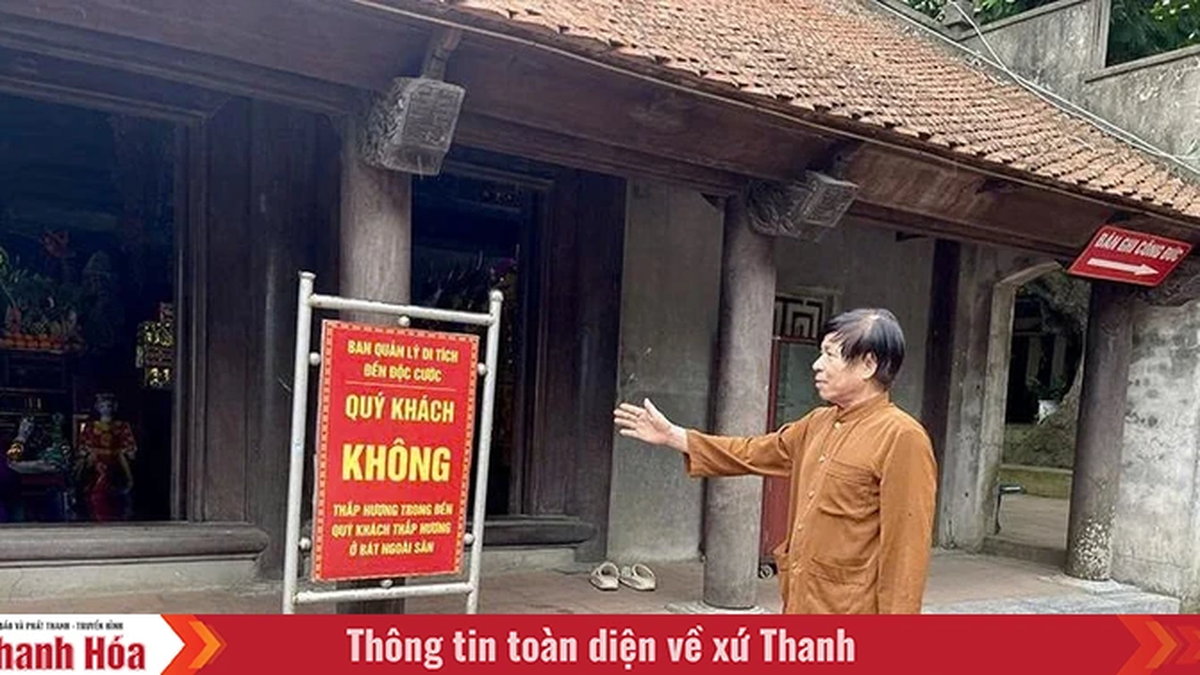Great impact on society
As soon as Circular 22 was issued, there were many opinions reflecting and worrying about the consequences of changing phone numbers. Simply for each citizen, having to change the phone number in the phone book takes a lot of time and trouble. Roughly calculating the cost of reprinting millions of signs and hundreds of millions of business cards is also a huge expense. The most affected are probably businesses using area code phone numbers associated with their brands. Ms. Le Thi Thu Nga, owner of a fast food restaurant on Xuan Thuy Street ( Hanoi ), worriedly shared: "My store mainly serves customers who order food via landline. Changing the number will be very troublesome and negatively affect business. Besides, I have to reprint everything from employee uniforms to flyers, advertising signs,... costing tens of millions of dong". Sharing the same concern, Mr. Le Trung, in charge of the business division of Posco VST Co., Ltd. - a steel trading company of Posco Group (Korea) said: The company has many customers in all provinces across the country. Therefore, changing the telephone area code will cause many difficulties for businesses in communicating with them, sometimes losing sales opportunities. Even in transactions with international partners today, although most are done via email for accuracy, customers will still call if there is an urgent matter, but how will they know how their number has been changed?
Talking about taxi operations, a business mainly conducted through landline phones, Chairman of the Hanoi Taxi Association Nguyen Phuc Thanh commented: Each phone number for taxi companies is also a brand. Therefore, changing phone numbers means changing the brand, "breaking" the connection between taxi companies and customers. Therefore, many large taxi companies such as Mai Linh and Vinasun may spend billions of dong to repaint the vehicle body as well as reprint advertising products, but it cannot be compared to the invisible losses caused by changing phone numbers. Vice Chairman of the Vietnam Automobile Transport Association Than Van Thanh commented: Changing phone numbers will first of all cause inconvenience for everyone in communicating by phone. Besides, it is not yet known what benefits this will bring, but certainly businesses and agencies will incur huge costs in reprinting their publications. Therefore, it is necessary to clearly define if it is really necessary to do it, to reduce unnecessary waste for society.
Need to re-plan?
In response to the above question, Head of the Department of Infrastructure and Connectivity (Department of Telecommunications, Ministry of Information and Communications) Giang Van Thang affirmed: Re-planning the telecommunications numbering system is necessary because the country currently has about 130 million telephone subscribers, of which there are more than 120 million mobile subscribers, the number of fixed subscribers accounts for only more than 5% and tends to decrease. According to the old plan, out of a maximum of nine prefixes (1 to 9) that can be planned as area codes and network codes, seven numbers are used as area codes for fixed networks, only two numbers, 1 and 9, are reserved for mobile networks. This reveals the inefficiency in planning and using the numbering system between fixed networks and mobile networks. In the long term, with the strong development of the mobile telecommunications market as it is today, it will lead to a shortage of mobile numbers, while the number of fixed numbers is increasingly redundant. The new plan solves this problem by only using one code prefix as an area code (number 2), six numbers for mobile networks and one code prefix as a network code for mobile subscribers that are devices. "It is also possible to extend the number of mobile subscribers to increase the number pool, but this will cause many inconveniences for users. We have considered it very carefully and decided to come up with the most optimal solution which is to only change the prefix number, people's phone numbers will remain the same, so that the impact will be minimal," Mr. Thang affirmed. Another reality is that due to the "longer" number of characters, 11-digit subscribers seem to be being rejected by users, even considered "garbage" numbers, and are very few people like and use them as their main contact numbers. Therefore, according to Mr. Thang, converting 11-digit mobile subscribers to 10-digit ones will help eliminate inequality between subscriber numbers, better ensuring the rights of users of these subscribers. This is also a requirement for Vietnam's integration process, when many other countries, including the US, when negotiating the Trans- Pacific Partnership Agreement (TPP), are very concerned about ensuring fairness and equal lottery rights.
In response to people's questions about the "haste" of the Ministry of Information and Communications in implementing the change of telephone numbers, Mr. Thang explained: In reality, there is a confusion about the time. March 1, 2015 is only the effective date of the Telecommunications Numbering Plan, not the deadline for implementing the change of telephone numbers. After the plan is officially approved (not yet approved), the Ministry of Information and Communications will organize meetings, research, and collect opinions from telecommunications businesses and from the people, in order to accurately calculate the roadmap for changing telephone numbers. There is still no official time to apply the change of numbers. It is expected that it will take six to eight months of preparation to start changing area codes in turn for each economic region, and the conversion of 11-digit mobile subscribers to 10-digit numbers can be carried out as early as 2017. Also according to the Decree guiding the Telecommunications Law, when changing subscriber numbers, service providers must notify subscribers at least 60 days in advance through mass media; and at the same time allow simultaneous calls using the old and new methods within 60 days. Even after this period, customers who dial the wrong prefix code will still hear an automatic announcement in both English and Vietnamese about the change of prefix number with specific instructions on how to call using the new prefix number. Therefore, all people and businesses will certainly have enough time to prepare and gradually get used to using the new prefix code.
Regarding the comments that the arrangement of area codes of localities is still messy, Mr. Thang said: Previously, due to many times provinces merged and then split, the distribution of code prefixes to localities was not in accordance with the rules. Therefore, in the new planning, the Telecommunications Department has proactively rearranged the area codes of the provinces, following the rule from north to south, from east to west; at the same time, trying to keep the old codes as much as possible (such as Cao Bang changing from 26 to 206, Thanh Hoa from 37 to 237...). However, because it is necessary to rearrange all area codes scientifically, it is impossible to avoid the situation where the area codes of some provinces are completely changed (Da Nang from 511 to 236, Nam Dinh from 350 to 228...).
It can be seen that the re-planning of telecommunications numbers, although bringing a lot of inconvenience and damage to society, is also an urgent need, a more reasonable investment for the future. However, in the implementation process, it is hoped that state management agencies, directly the Ministry of Information and Communications, need to carefully consider, collect comments from many sides... to discuss and come up with the most optimal implementation plan and roadmap, in order to both ensure the rights of the people, reduce social costs, and make the conversion of telephone numbers be implemented smoothly and with the highest efficiency.
Source: https://nhandan.vn/ve-viec-doi-dau-so-va-ma-vung-dien-thoai-post222639.html




















































![[Maritime News] More than 80% of global container shipping capacity is in the hands of MSC and major shipping alliances](https://vphoto.vietnam.vn/thumb/402x226/vietnam/resource/IMAGE/2025/7/16/6b4d586c984b4cbf8c5680352b9eaeb0)













































Comment (0)